For a crudely animated cartoon about four young Colorado boys living in their small rural hometown, South Park has seen and done it all. After nearly two decades on the air, there are few topics the Comedy Central series has not broached, tackled, or skewered in some form or another. Even early on in the show’s successful run, it was never afraid to push the envelope or too intimidated to say something others wouldn’t. Given the ease with which creators Trey Parker and Matt Stone can turn around episodes, they continuously pull inspiration from current events and major moments in our culture – often to masterfully humorous effect.
However, within all of those controversial episodes and ridiculous jokes, a bunch did something beyond shock audiences: they were smart and made us think. Some episodes of South Park not only made us laugh, but also made us think long and hard about myriad issues that have popped up over the years. Sometimes they mocked current trends, and sometimes they even predicted future ones. More often than not, the show’s assessments were right on the money. Stan and Kyle may often close out an episode by explaining what they learned, but so did the loyal audience.
1. ‘This is what Scientologists actually believe’
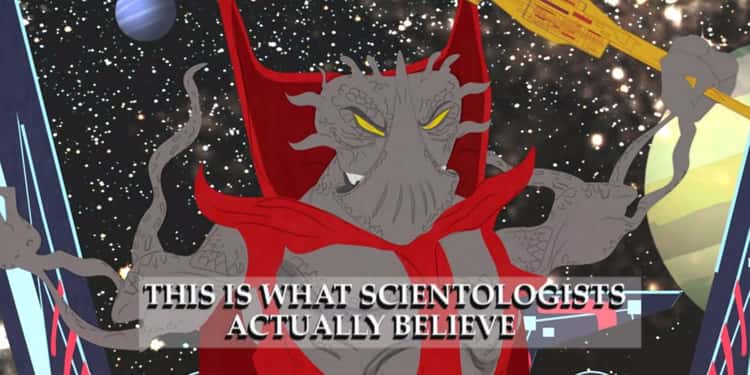
Episode: “Trapped in the Closet” (2005)
While the critically acclaimed documentary Going Clear: Scientology and the Prison of Belief brought many dark aspects of the controversial religion to light in 2015, back in 2005, South Park broke new ground with the episode “Trapped in the Closet.” Holding a magnifying glass up to Scientology (as well as its robust celebrity following) the episode tore the religion apart in a way that would take a whole decade to become widespread and accepted, earning itself an Emmy in the process.
2. ‘I don’t care if Joseph Smith made it all up…’
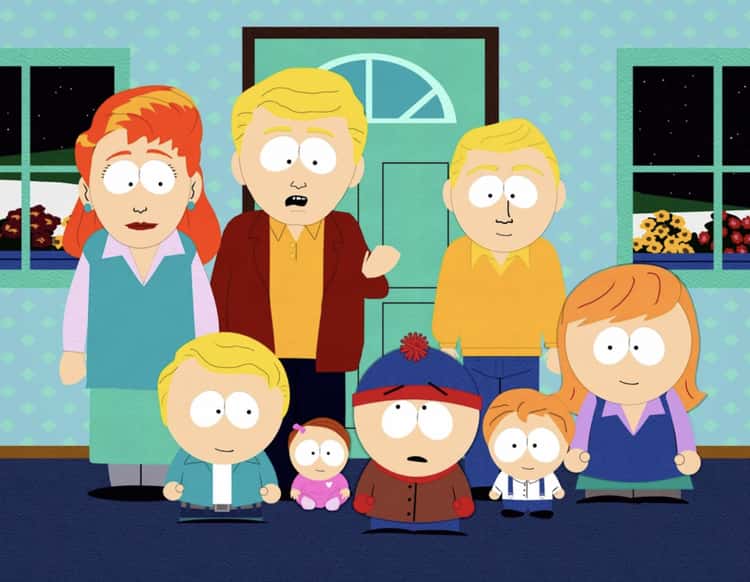
Episode: “All About Mormons” (2003)
When a perfect Mormon family moves to South Park, Stan’s father Randy cannot help but be taken by their religion and the effect it has on their relationships. As a result, the Marsh clan similarly converts to Mormonism; however, Stan simply cannot stomach the religion and repeatedly attempts to poke holes in its logic.South Park has never shied away from taking shots at religion, but this episode saw them look at it from the other perspective, and assert that a seemingly absurd religion that preaches good morals may not be such a bad thing.
3. ‘Please for the love of God, don’t ever show me in that condition on national television.’
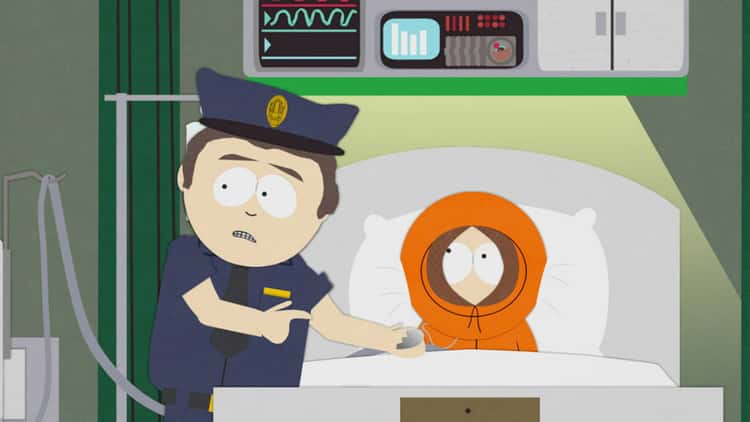
Episode: “Best Friends Forever” (2005)
When Kenny finds himself in a vegetative state, Kyle and Stan fight to have him kept alive while Cartman battles to have the feeding tube removed. Modeled after the Terri Schiavo controversy of 2005, the episode takes no specific stance on the right to die issue, but instead condemns the approach the mass media takes towards what should be considered a private, personal affair. We live in a world where everyone’s best and worst moments can now go viral in an instant; sometimes things are better left out of the spotlight.
4. ‘It’s always between a giant douche and a turd sandwich. Nearly every election since the beginning of time has been between some douche and some turd.’
Episode: “Douche and Turd” (2004)
Vote or die. That was the ultimatum presented to Stan Marsh by rapper Puff Daddy when the fourth grader refused to cast a vote for giant douche or a turd sandwich to be the new school mascot. Despite its ridiculous premise, this episode of South Park touched on the concept of voter apathy, the fact that such apathy is not a crime, and the idea of whether or not our votes really matter in contemporary democracy.
5. ‘Sex isn’t something that should be taught in textbooks and diagrams. Sex is emotional and spiritual.’
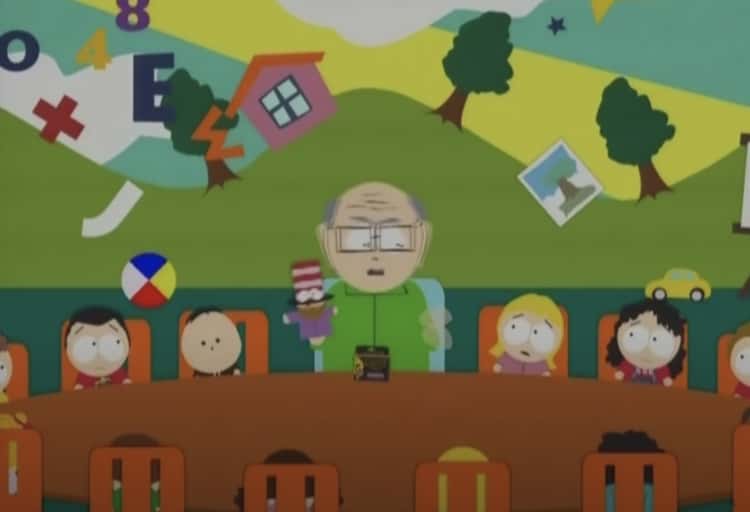
Episode: “Proper Condom Use” (2001)
When Cartman goes around unknowingly massaging town dogs to full climax, parents of South Park demand sexual education be taught in schools at even younger grade levels. Unfortunately, mishandling by the faculty cause the town’s boys and girls to go to war over fear of passing diseases to one another.The episode makes the point that parents cannot leave this sort of conversation in the hands of schools simply because they are afraid of having an awkward talk with their children.
6. ‘The money in your account, it didn’t do too well and it’s gone.’
Episode: “Margaritaville” (2009)
Randy takes Stan to the bank with $100 in an attempt to teach his son the importance of saving money; Stan responsibly puts the money in a savings account and within less than a minute the bank loses it through a series of bad investments. “Margaritaville” saw South Park take on the 2008 recession and the big banks’ reckless investing of people’s money by portraying major American economic institutions as remorseless giants with little regard for the safety of their customers’ money.
7. ‘I get it now. I don’t get it.’
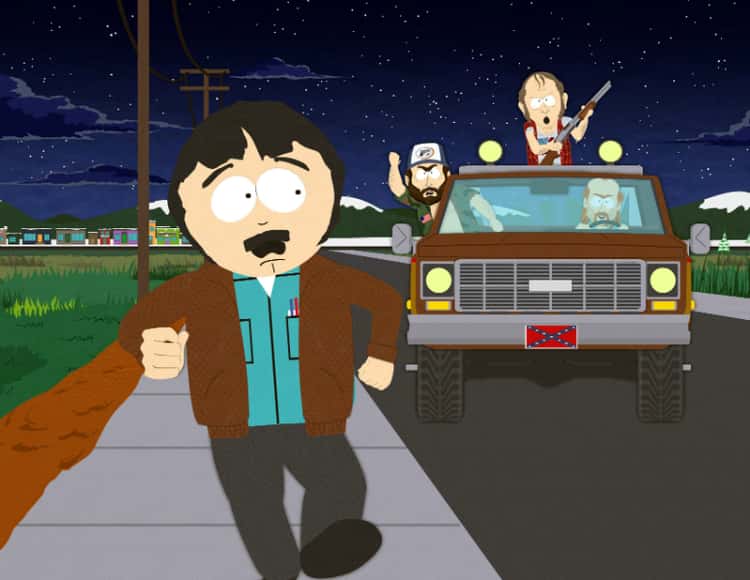
Episode: “With Apologies to Jesse Jackson” (2007)
When Randy Marsh excitedly yells out the N-word on national television in an attempt to win on Wheel of Fortune, he becomes subject to harassment and abuse that mirrors the Black experience from American history. This episode of South Park examined the weight that a single word can carry for an entire group of people, while continuously implying that while other groups may pretend to understand, they cannot, and will never, “get it.”
8. ‘Being spoiled and stupid and whorish is supposed to be a bad thing, remember?’
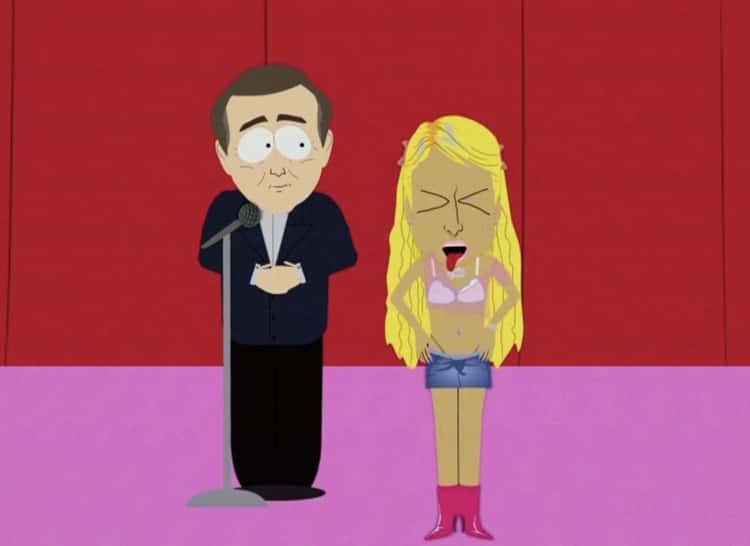
Episode: “Stupid Spoiled Whore Video Playset” (2004)
When Paris Hilton comes to visit South Park, all the girls run out to buy her products and model their lives after the then-controversial heiress. When her influence on the kids becomes overwhelmingly negative, it’s up to Mr. Slave to put her in her place.The episode touches on the notion of celebrity worship and the early age at which overly sexual pop culture is brought into kids’ lives. In a world where kids destroy their bodies in an attempt to resemble a Kardashian, this lesson still holds merit.
9. ‘When I make jokes, they are inherent to a story! Deep, situational and emotional jokes based on what is relevant and has a POINT! Not just one interchangeable joke after another!
Episode: “Cartoon Wars” (2006)
South Park got more than a little meta with the “Cartoon Wars” two-part episode event. Using imminent threats of terrorism, Cartman sets out to get Family Guy taken off the air for good because he despises the show’s lazy writing style in which jokes come in the form of tangents that hold no bearing over the plot. Audiences could feel Matt Stone and Trey Parker’s own opinions spilling out through the episode, and rumors have persisted that after “Cartoon Wars” aired, The Simpsons and King of the Hill sent gifts to the creative team behind South Park.
